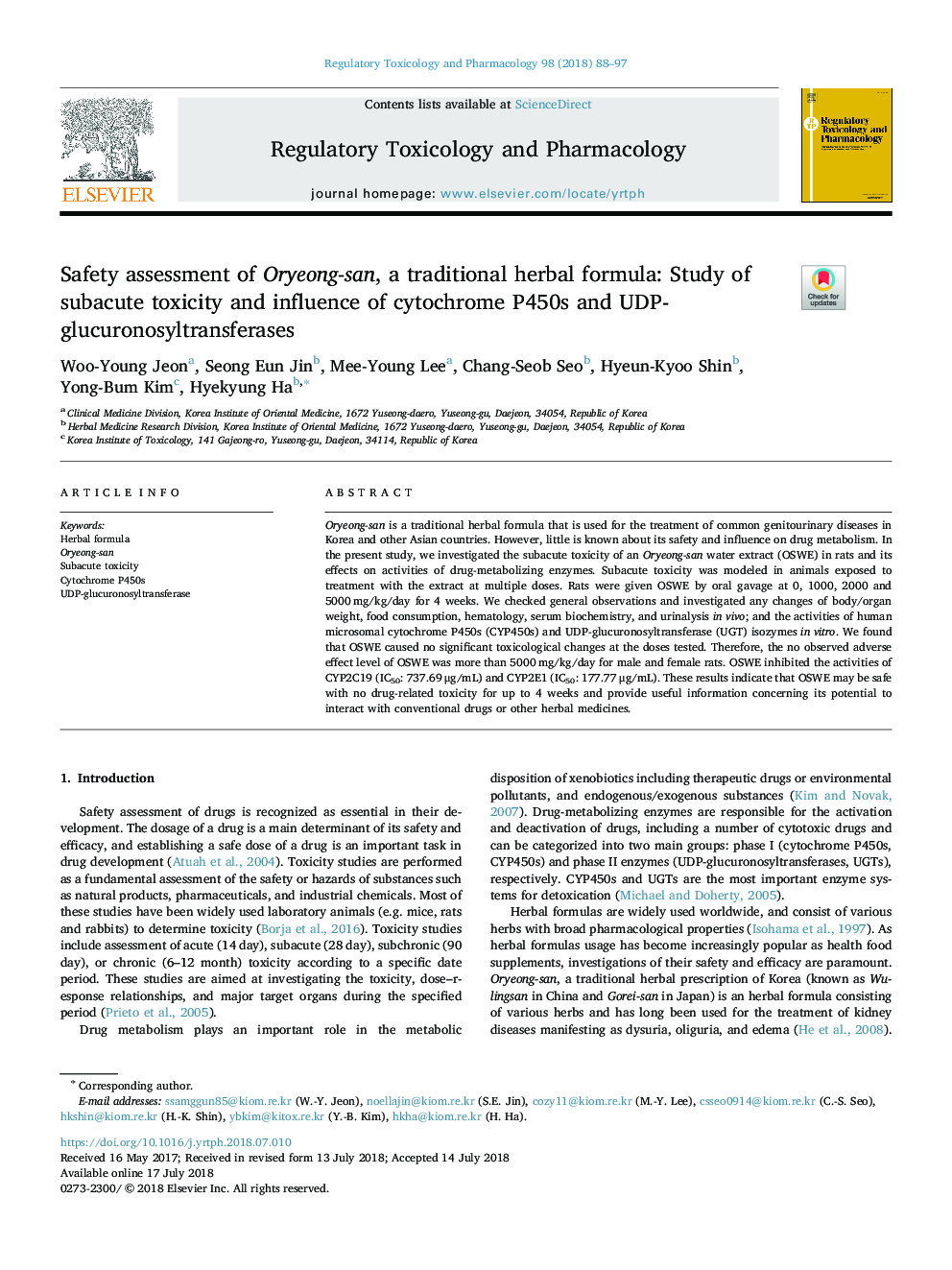| Article ID | Journal | Published Year | Pages | File Type |
|---|---|---|---|---|
| 8550749 | Regulatory Toxicology and Pharmacology | 2018 | 10 Pages |
Abstract
Oryeong-san is a traditional herbal formula that is used for the treatment of common genitourinary diseases in Korea and other Asian countries. However, little is known about its safety and influence on drug metabolism. In the present study, we investigated the subacute toxicity of an Oryeong-san water extract (OSWE) in rats and its effects on activities of drug-metabolizing enzymes. Subacute toxicity was modeled in animals exposed to treatment with the extract at multiple doses. Rats were given OSWE by oral gavage at 0, 1000, 2000 and 5000â¯mg/kg/day for 4 weeks. We checked general observations and investigated any changes of body/organ weight, food consumption, hematology, serum biochemistry, and urinalysis in vivo; and the activities of human microsomal cytochrome P450s (CYP450s) and UDP-glucuronosyltransferase (UGT) isozymes in vitro. We found that OSWE caused no significant toxicological changes at the doses tested. Therefore, the no observed adverse effect level of OSWE was more than 5000â¯mg/kg/day for male and female rats. OSWE inhibited the activities of CYP2C19 (IC50: 737.69â¯Î¼g/mL) and CYP2E1 (IC50: 177.77â¯Î¼g/mL). These results indicate that OSWE may be safe with no drug-related toxicity for up to 4 weeks and provide useful information concerning its potential to interact with conventional drugs or other herbal medicines.
Related Topics
Life Sciences
Environmental Science
Health, Toxicology and Mutagenesis
Authors
Woo-Young Jeon, Seong Eun Jin, Mee-Young Lee, Chang-Seob Seo, Hyeun-Kyoo Shin, Yong-Bum Kim, Hyekyung Ha,
